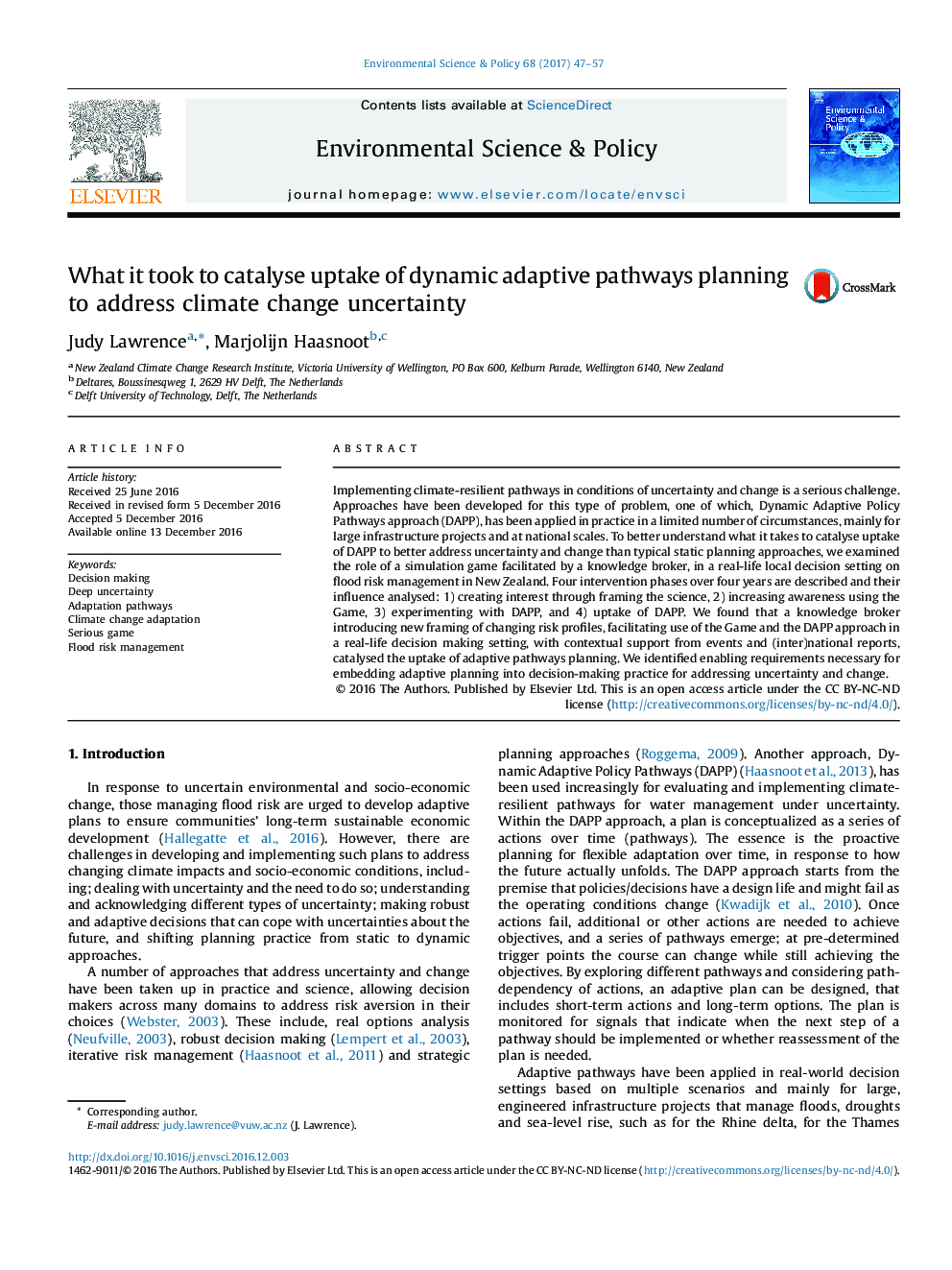| Article ID | Journal | Published Year | Pages | File Type |
|---|---|---|---|---|
| 5115835 | Environmental Science & Policy | 2017 | 11 Pages |
â¢Uptake of Dynamic Adaptive Policy Pathways (DAPP) approach was catalysed using a Game facilitated by a 'knowledge broker'.â¢Framing of climate change uncertainty and consequences enabled a knowledge broker entry into a decision process to apply the DAPP.â¢Adaptive planning requires supporting enablers for its sustained use.
Implementing climate-resilient pathways in conditions of uncertainty and change is a serious challenge. Approaches have been developed for this type of problem, one of which, Dynamic Adaptive Policy Pathways approach (DAPP), has been applied in practice in a limited number of circumstances, mainly for large infrastructure projects and at national scales. To better understand what it takes to catalyse uptake of DAPP to better address uncertainty and change than typical static planning approaches, we examined the role of a simulation game facilitated by a knowledge broker, in a real-life local decision setting on flood risk management in New Zealand. Four intervention phases over four years are described and their influence analysed: 1) creating interest through framing the science, 2) increasing awareness using the Game, 3) experimenting with DAPP, and 4) uptake of DAPP. We found that a knowledge broker introducing new framing of changing risk profiles, facilitating use of the Game and the DAPP approach in a real-life decision making setting, with contextual support from events and (inter)national reports, catalysed the uptake of adaptive pathways planning. We identified enabling requirements necessary for embedding adaptive planning into decision-making practice for addressing uncertainty and change.
